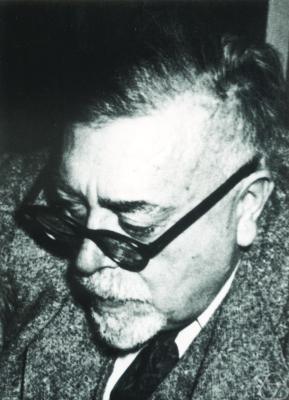The nervous system and the automatic machine are fundamentally alike in that they are devices, which make decisions on the basis of decisions they made in the past.

"Cybernetics"Brownian motionabstract Wiener spaceWiener amalgam spaceclassical Wiener spaceEvolutionary informaticsGeneralized Wiener processInformation revolutionPhilosophy of informationWiener algebraPolynomial chaos/Wiener chaos expansionWiener deconvolutionWiener entropyWiener equationWiener filterWiener processWiener sausageWiener seriesWiener–Hopf methodWiener–Ikehara theoremWiener–Khinchin theoremPaley–Wiener integralPaley–Wiener theoremWiener–Wintner theoremWiener's tauberian theorem}}
/author_abbrev_zoo =
/influences =
/influenced =
/prizes = Bôcher Memorial Prize (1933)National Medal of Science (1963)
/religion =
/footnotes =
}}
"Norbert Wiener" (November 26, 1894 – March 18, 1964) was an American mathematician and philosopher. He was Professor of Mathematics at Massachusetts Institute of Technology/MIT.
A famous child prodigy, Wiener later became an early researcher in stochastic processes/stochastic and noise processes, contributing work relevant to electronic engineering, electronic communication, and control systems.
Wiener is considered the originator of cybernetics, a formalization of the notion of feedback, with implications for engineering, systems control, computer science, biology, neuroscience, philosophy, and the organization of society.
If you enjoy these quotes, be sure to check out other famous mathematicians! More Norbert Wiener on Wikipedia.The more we get out of the world the less we leave, and in the long run we shall have to pay our debts at a time that may be very inconvenient for our own survival.
To live effectively is to live with adequate information.
The idea that information can be stored in a changing world without an overwhelming depreciation of its value is false. It is scarcely less false than the more plausible claim that after a war we may take our existing weapons, fill their barrels with information.
The modern physicist is a quantum theorist on Monday, Wednesday, and Friday and a student of gravitational relativity theory on Tuesday, Thursday, and Saturday. On Sunday he is praying. . . that someone will find the reconciliation between the two views.
A single inattention may lose a chess game, whereas a single successful approach to a problem, among many which have been relegated to the wastebasket, will make a mathematician's reputation.
Copyright © 2024 Electric Goat Media. All Rights Reserved.